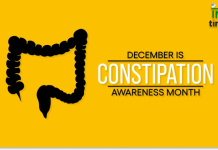
World Antimicrobial Awareness Week (WAAW), observed annually from November 18 to 24, highlights the urgent need to raise awareness and action against antimicrobial resistance (AMR). This global campaign, launched by the World Health Organization (WHO), calls for collaboration across sectors and communities to combat AMR and protect the effectiveness of life-saving antibiotics, antivirals, and antifungals. Addressing antimicrobial resistance is essential to safeguarding both human and animal health worldwide.
Understanding Antimicrobial Resistance (AMR)
Antimicrobial resistance occurs when microorganisms—such as bacteria, viruses, fungi, and parasites—adapt and become resistant to the drugs that once killed them or controlled their growth. Misuse and overuse of antibiotics, poor infection prevention, and lack of awareness are significant contributors to this global issue.
Goals and Objectives of World Antimicrobial Awareness Week
- Increase Awareness: Educate individuals, healthcare professionals, and policymakers about AMR risks and prevention.
- Promote Best Practices: Encourage responsible use of antimicrobials among the public and healthcare sectors.
- Strengthen Global Cooperation: Foster collaboration between countries, healthcare sectors, and communities to improve policies and practices.
- Prevent Infections: Support the development of infection prevention and control measures to reduce the spread of resistant organisms.
WAAW 2024 Theme and Focus Areas
The theme for World Antimicrobial Awareness Week 2024, “Antimicrobials: Handle with Care,” emphasizes careful, mindful usage. Key areas include:
- Promoting Responsible Use of Antimicrobials: Education on the appropriate use of antimicrobials to prevent misuse.
- Strengthening Policies: Encouraging governments to implement stronger AMR-related regulations and monitoring.
- Empowering Health Workers: Providing resources and training to healthcare workers to improve antibiotic stewardship.
- Public Engagement and Education: Raising awareness about the risks of self-medication and the importance of prescribed antimicrobial use only.
Impact of Antimicrobial Resistance
- Global Health Threat: AMR has become one of the leading global health concerns. It complicates the treatment of diseases, leading to higher medical costs, prolonged hospital stays, and increased mortality rates.
- Economic Burden: The financial impact is significant, with increased healthcare costs and losses in productivity due to longer illness durations and more intensive treatments.
- Future Generations at Risk: Without action, future generations may face a world where simple infections are life-threatening due to untreatable resistant organisms.
Factors Contributing to AMR
- Overprescription and Self-Medication: Unnecessary antibiotic prescriptions and self-medication contribute to the spread of resistance.
- Agricultural Misuse: The use of antimicrobials in livestock to promote growth rather than treat infections can lead to resistant bacteria that spread to humans.
- Inadequate Hygiene and Sanitation: Poor sanitation practices can exacerbate the spread of resistant infections, especially in healthcare settings.
Antimicrobial Stewardship: A Critical Strategy
Antimicrobial stewardship involves optimizing the use of antimicrobials to prevent resistance. Key strategies include:
- Educating Healthcare Workers: Training health professionals to diagnose infections accurately and prescribe the appropriate treatments.
- Public Health Campaigns: Educating the public on the dangers of misuse and overuse, promoting adherence to prescribed treatments.
- Regulation of Antimicrobial Use in Agriculture: Encouraging responsible use of antibiotics in farming, reducing the risk of resistant bacteria entering the human food chain.
How Individuals Can Contribute to Reducing AMR
- Use Antibiotics Responsibly: Always follow a healthcare provider’s guidance and complete the prescribed course of treatment.
- Practice Good Hygiene: Regular handwashing and proper food handling can reduce the spread of infections.
- Vaccinations: Keeping vaccinations up to date can prevent infections that might otherwise require antibiotic treatment.
- Avoid Sharing Medications: Never share antibiotics or any medication with others, as misuse can contribute to resistance.
The Role of Healthcare Providers
Healthcare providers play a crucial role in combating AMR. Responsibilities include:
- Educating Patients: Informing patients about AMR and the importance of responsible medication use.
- Implementing Infection Control Measures: Preventing infection transmission in healthcare facilities through hygiene protocols.
- Advocating for Stewardship Programs: Supporting antimicrobial stewardship initiatives within their organizations.
The Role of Policymakers in Combating AMR
Government and policymakers can help combat AMR by:
- Implementing National Action Plans: Developing policies to monitor and combat AMR across sectors.
- Supporting Research and Development: Funding initiatives for new antimicrobial drugs, vaccines, and alternative treatments.
- Regulating Antimicrobial Use in Agriculture: Setting limits on non-therapeutic antimicrobial use in livestock.
Global Partnerships for AMR Awareness and Action
- One Health Approach: Encourages collaboration across human health, animal health, and environmental sectors.
- WHO and Global Organizations: WHO works with countries to implement global AMR action plans, including promoting data collection and standardizing guidelines.
Conclusion
World Antimicrobial Awareness Week 2024 serves as a call to action for all sectors to take urgent steps against antimicrobial resistance. AMR poses a grave threat, but through mindful actions, collaborative efforts, and public education, we can protect the efficacy of these vital drugs for future generations.
FAQs
1. Why is antimicrobial resistance a global concern?
Antimicrobial resistance limits treatment options, leading to higher mortality rates, longer illnesses, and increased healthcare costs globally.
2. What are common causes of antimicrobial resistance?
Misuse of antibiotics, overuse in livestock, and poor hygiene practices are major contributors to AMR.
3. How can individuals help combat AMR?
Using antibiotics responsibly, practicing good hygiene, and getting vaccinated are ways individuals can contribute to reducing AMR.
4. How does agriculture contribute to AMR?
The use of antimicrobials in livestock can lead to resistant bacteria, which may spread to humans through the food chain or environment.
5. What is antimicrobial stewardship?
Antimicrobial stewardship involves policies and practices to optimize antimicrobial use, aiming to slow the development of resistance.
World Antimicrobial Awareness Week is a time to reflect, educate, and take action. Through global cooperation, community awareness, and responsible practices, we can address the AMR crisis and ensure a healthier future for all.


































